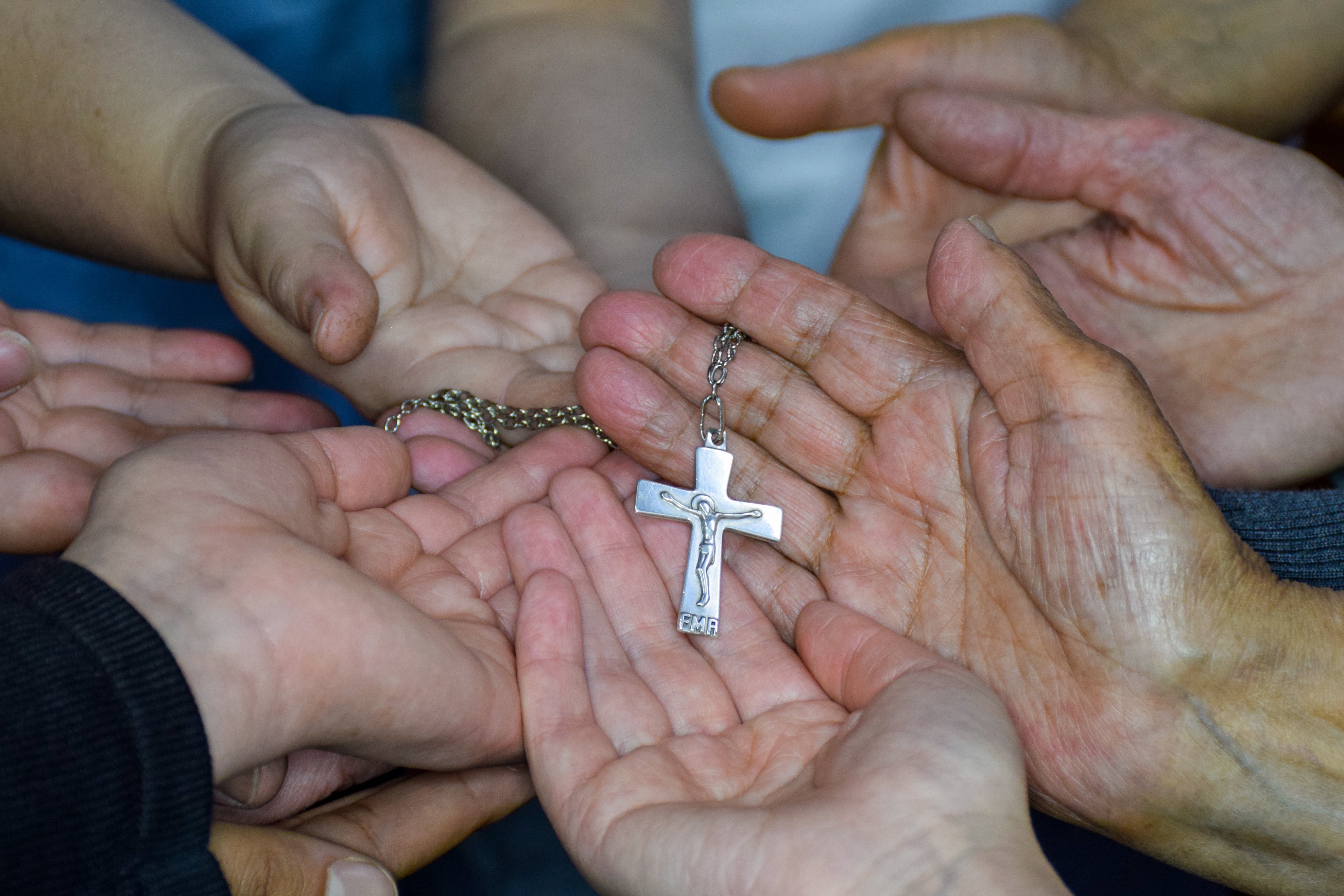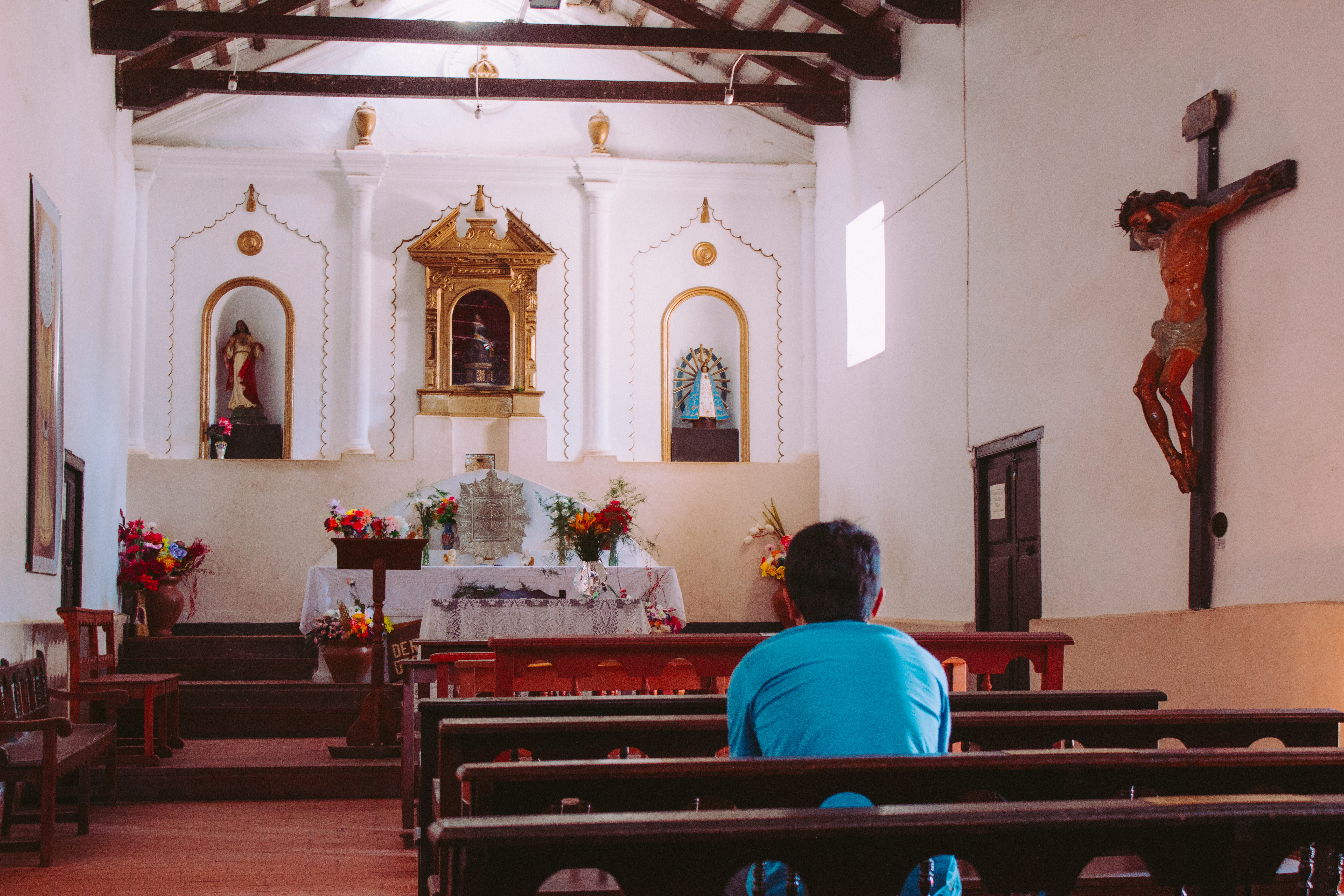In today’s First Reading, we hear Jeremiah tell the people: “Reform your ways and your deeds; listen to the voice of the Lord your God.”
If we take time to reflect on Jeremiah’s words, we will see the importance of applying them to our lives, for we must realize that he doesn’t just mean to stop sinning. Of course, we must always strive not to sin. That’s an integral part of our faith. But living a faith-filled life is much more than that.
So often we find it easy to not break the commandments. As we prepare for confession and perform an examination of conscience, we may feel buoyed by the fact that we have not missed Mass, said God’s name in vain, hurt another person, or stolen anything. And, yes, those are vital.
But what Jeremiah meant when he said to reform our ways and deeds was to do something that will make a difference for others. We must take action and do good works. We must put others and their needs first. In short, we must learn to perform the Corporal and Spiritual Works of Mercy regularly.
What are these works of mercy? The Corporal Works of Mercy instruct us to feed the hungry, give drink to the thirsty, shelter the homeless, visit prisoners and those who are sick, bury the dead, and give alms to the poor. The Spiritual Works of Mercy teach us to pray for the living and the dead, to counsel and comfort others, to forgive, to admonish the sinner, and to teach the faith.
All of these things take time, effort, and love, and if we are to live as God commands and as Jeremiah instructed, then we must incorporate some of these into our lives.
There are countless ways to help the vulnerable and those in need. Increasing our prayer life is a good start, especially if we aren’t sure what God wants us to do. Of course, we cannot perform all of these works of mercy all the time, but we can do many of them frequently. So pray for God’s guidance. Ask Him where He wants you to start.
Maybe He wants you to donate time to your parish. Maybe He is calling you to volunteer at a pregnancy resource center. Maybe He is spurring you on to clean your closets and donate gently used items to a homeless shelter or to serve food at one. Maybe He is calling you to become a foster parent or adopt. Maybe He sends you to the grocery store at the exact time a needy person has found he doesn’t have enough money for groceries. Or maybe He wants you to visit the forgotten elderly in a nursing home.
All of these are tangible ways to help others and to follow the words of Jeremiah. Yes, we must reform our deeds if we want to spend eternity with God. What will you do?
En la Primera Lectura de hoy, escuchamos a Jeremías decir al pueblo: “Corrijan su conducta y sus obras; escucha la voz del Señor tu Dios”.
Si nos tomamos un tiempo para reflexionar sobre las palabras de Jeremías, veremos la importancia de aplicarlas a nuestra vida, pues debemos darnos cuenta de que él no solo quiere decir dejar de pecar. Por supuesto, siempre debemos esforzarnos por no pecar. Esa es una parte integral de nuestra fe. Pero vivir una vida llena de fe es mucho más que eso.
Muy a menudo nos resulta fácil no romper los mandamientos. Mientras nos preparamos para la confesión y realizamos un examen de conciencia, podemos sentirnos animados por el hecho de que no hemos faltado a Misa, dicho el nombre de Dios en vano, herido a otra persona o robado algo. Y, sí, esos son esenciales.
Pero lo que Jeremías quiso decir cuando dijo que corrijiéramos nuestra conducta y obras era hacer algo que hace una diferencia para los demás. Debemos actuar y hacer buenas obras. Debemos poner a los demás y sus necesidades primero. En definitiva, debemos aprender a realizar las Obras de Misericordia Corporales y Espirituales con regularidad.
¿Cuáles son estas obras de misericordia? Las Obras de Misericordia Corporales nos instruyen a dar de comer al hambriento, dar de beber al sediento, acobijar a los desamparados, visitar a los presos y enfermos, enterrar a los muertos y dar limosna a los pobres. Las Obras de Misericordia Espirituales nos enseñan a orar por los vivos y los muertos, a aconsejar y consolar a otros, a perdonar, a amonestar al pecador y a enseñar la fe.
Todas estas cosas toman tiempo, esfuerzo y amor, y si vamos a vivir como Dios manda y como Jeremías instruyó, entonces debemos incorporar algunas de estas cosas en nuestras vidas.
Hay innumerables maneras de ayudar a los vulnerables y los necesitados. Aumentar nuestra vida de oración es un buen comienzo, especialmente si no estamos seguros de lo que Dios quiere que hagamos. Por supuesto, no podemos realizar todas estas obras de misericordia todo el tiempo, pero podemos hacer muchas de ellas con frecuencia. Así que pide a Dios que te guíe. Pregúntale por dónde quiere que empieces.
Tal vez Él quiera que dones tiempo a tu parroquia. Tal vez te está llamando para ser voluntaria en un centro de recursos para el embarazo. Tal vez te esté animando a limpiar sus armarios y donar artículos usados en buen estado a un refugio para personas sin hogar o para servir comida. Tal vez te está llamando a convertirte en padre de crianza o adoptar. Tal vez te envía a la tienda a comprar justo en el momento que una persona necesitada descubrió que no tiene suficiente dinero para comprar alimentos. O tal vez quiere que visites a los ancianos olvidados en un asilo de ancianos.
Todas estas son formas tangibles de ayudar a los demás y de seguir las palabras de Jeremías. Sí, debemos reformar nuestras obras si queremos pasar la eternidad con Dios. ¿Qué vas a hacer?
 Susan Ciancio has a BA in psychology and a BA in sociology from the University of Notre Dame, with an MA in liberal studies from Indiana University. For the past 19 years, she has worked as a professional editor and writer, editing both fiction and nonfiction books, magazine articles, blogs, educational lessons, professional materials and website content. Thirteen of those years have been in the pro-life sector. Currently Susan freelances and writes weekly for HLI, edits for American Life League, and is the executive editor of Celebrate Life Magazine. She also serves as executive editor for the Culture of Life Studies Program—an educational nonprofit program for K-12 students. You can reach her at slochner0.wixsite.com/website.
Susan Ciancio has a BA in psychology and a BA in sociology from the University of Notre Dame, with an MA in liberal studies from Indiana University. For the past 19 years, she has worked as a professional editor and writer, editing both fiction and nonfiction books, magazine articles, blogs, educational lessons, professional materials and website content. Thirteen of those years have been in the pro-life sector. Currently Susan freelances and writes weekly for HLI, edits for American Life League, and is the executive editor of Celebrate Life Magazine. She also serves as executive editor for the Culture of Life Studies Program—an educational nonprofit program for K-12 students. You can reach her at slochner0.wixsite.com/website.
Feature Image Credit: Sor Cata, FMA, www.cathopic.com/photo/25701-hermanas











